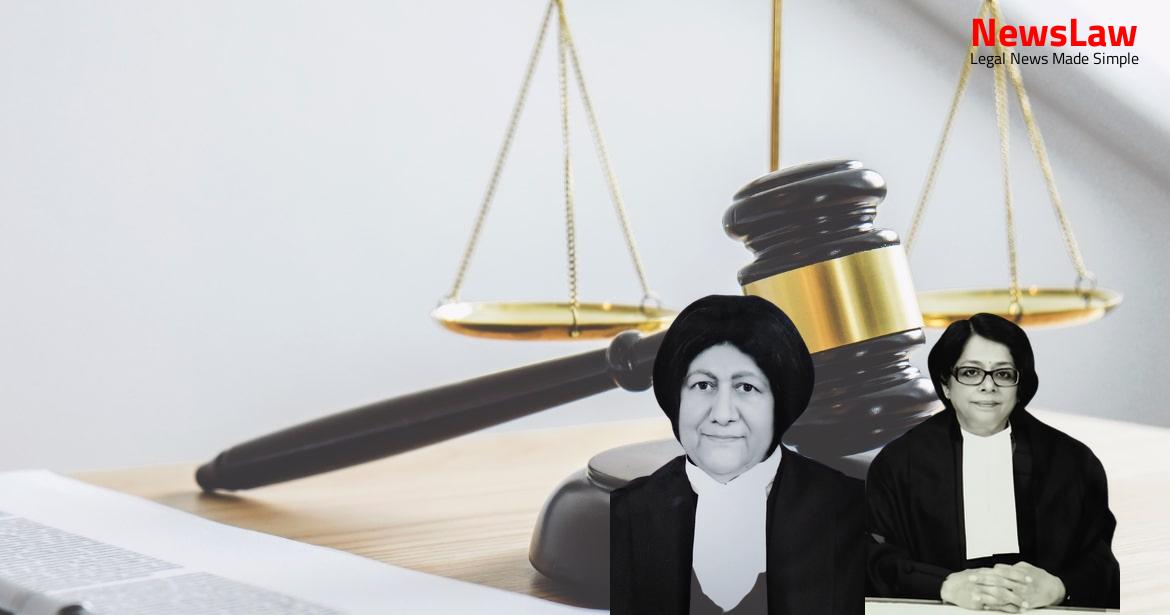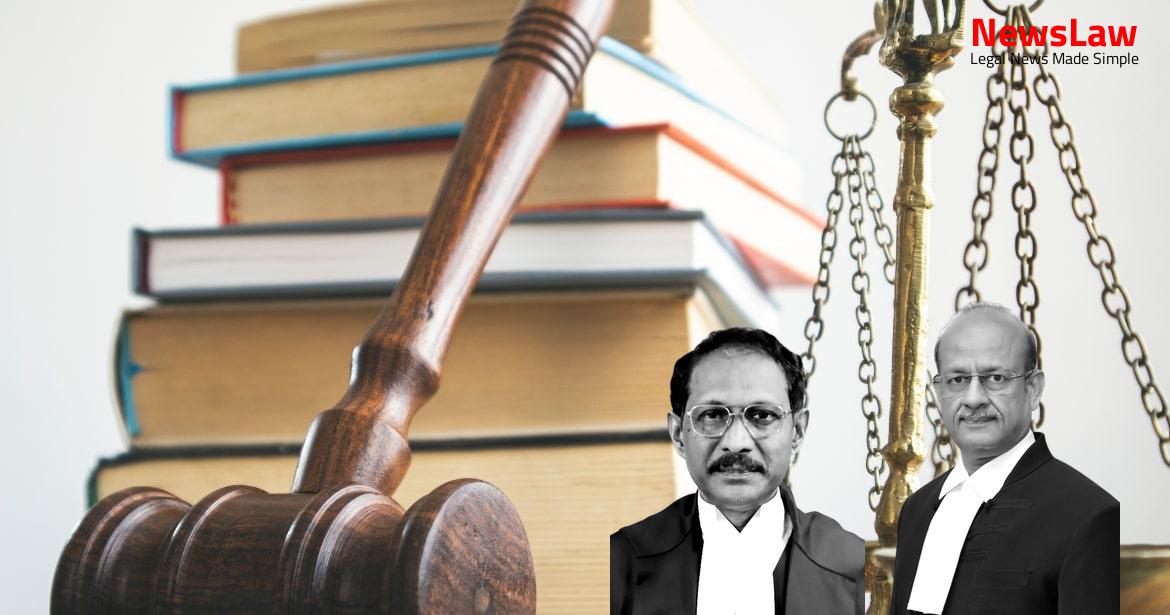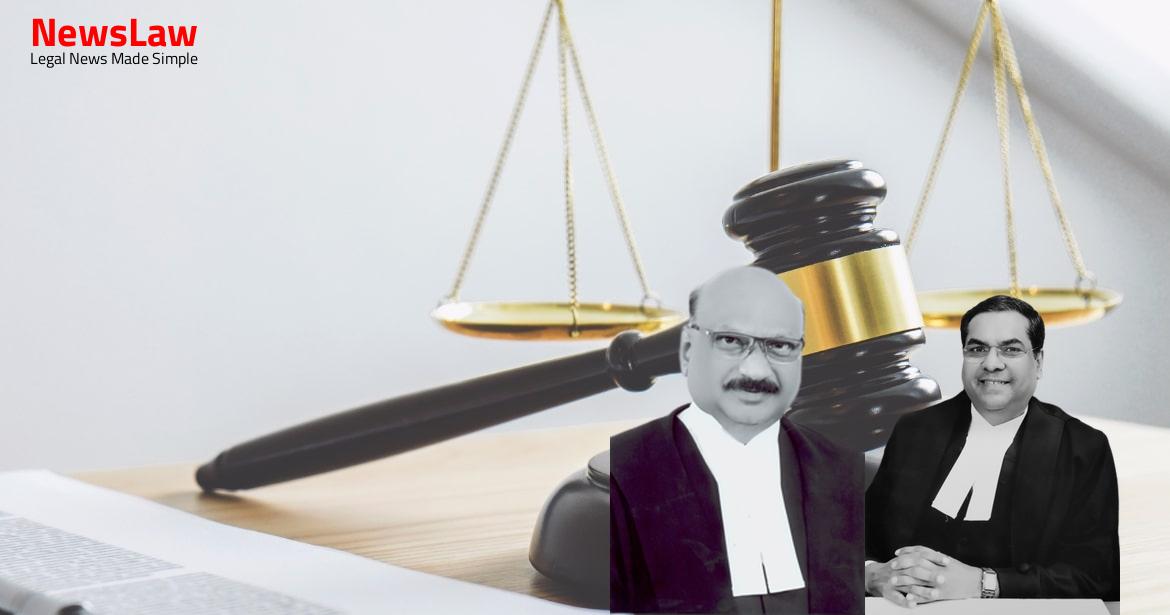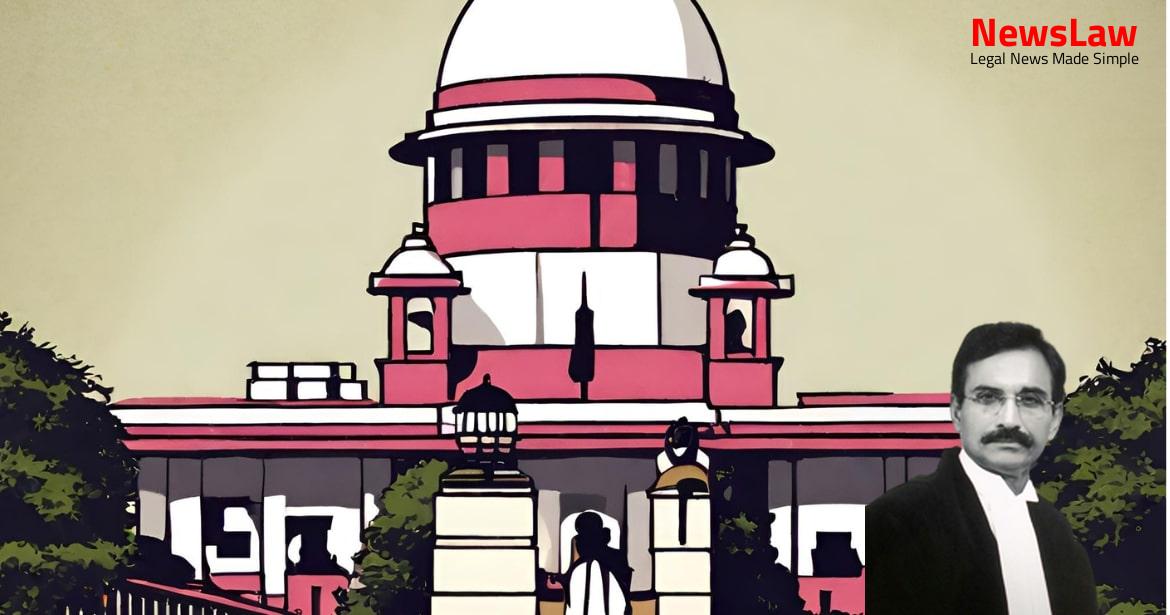The High Court’s role in reviewing disciplinary matters revolves around upholding procedural fairness and ensuring adherence to natural justice. This summary delves into the critical aspects of judicial review in legal cases, particularly in the context of disciplinary actions. Stay tuned to understand how the court evaluates the evidence, procedural compliance, and the principles guiding its decisions in such cases.
Facts
- A charge sheet was issued on 04.01.2007 for major penalty under Rule 153 of the Railway Protection Force Rules, 1987 by the Sr. Divisional Security Commissioner R.P.F.
- The charges framed included gross neglect of duty and abuse of authority.
- The Enquiry Officer exonerated the Respondent of charge 1(a) but found charges 1(b), (c), and 2 to be proved.
- On 12.07.2007, the Disciplinary Authority accepted the findings and imposed the punishment of removal from service.
- The Respondent filed appeals which were rejected by higher authorities.
- Senior Divisional Security Commissioner’s finding was not disturbed by the Appellate Authority, leading to a reduction in punishment to reversion for 6 months without future effect.
- Review of DAR proceedings was sought due to lacunae pointed out in the Appellate Authority’s order.
- Complaints against the respondent led to a show cause notice proposing compulsory retirement.
- Arrest by CBI in a separate case was considered irrelevant by the High Court.
- Charges regarding theft of coach trolley and CST-9 plates were scrutinized and some were not proved.
- High Court quashed certain orders and restored the decision of the first appellate authority.
- Delinquent employee faced serious charges leading to compulsory retirement with immediate effect.
- Allegations of neglect of duty and abuse of authority were noted.
- Witnesses were not examined for certain charges resulting in punishment of compulsory retirement.
- Discussion on the findings for various charges and the High Court’s decision in the Writ Petition filed by the respondent.
Also Read: Electoral Malpractices in Mayor Election
Issue
- Validity of the Judgment passed by the High Court questioned
- Consideration of setting aside the order of compulsory retirement
- Substitution of the retirement order with re-instatement and 50% backwages
- Background of Respondent’s employment with the Railway Protection Force (R.P.F)
- Suspension of Respondent on 11.12.2006 pending enquiry
Also Read: Balancing Power and Transparency: Electoral Bonds Struck Down, Disclosure Mandated
Analysis
- The High Court is not justified in re-appraising the evidence threadbare as a court of first appeal and substituting the order of punishment without sufficient reason.
- The Railway Protection Force Act mandates superior officers and members to protect railway property and passengers.
- Disciplinary enquiries must follow the rules of natural justice and not allow re-review of evidence by the High Court.
- The charges against the respondent involved neglect of duty leading to pecuniary loss to the Railways.
- The High Court’s interference can be based on issues like inconsistency with natural justice, lack of evidence supporting the conclusion of guilt, procedural violations, or arbitrary decision-making.
- The Respondent was compulsorily retired, not removed from service, and the charges were proven by the Disciplinary Authority.
- The standard of proof is based on preponderance of probabilities, not beyond reasonable doubt.
- The tribunal’s findings of fact cannot be challenged solely on insufficient material evidence.
- The High Court was not justified in setting aside the compulsory retirement order and directing reinstatement.
- The findings of the Enquiry Officer and Disciplinary Authority regarding the registration of a criminal case by the C.B.I Nagpur are based on the evidence on record.
- The judge does not assume the mantle of the disciplinary authority.
- High Court under Article 226 of the Constitution is not a court of appeal over the decision of the authorities holding a departmental enquiry against a public servant.
- The High Court shall not re-appreciate the evidence or interfere with the conclusions in the enquiry if it has been conducted in accordance with the law.
- The High Court should not go into the adequacy, reliability, or correctness of the evidence presented in the enquiry.
- The High Court can only interfere if there is some legal evidence on which findings can be based, and should not correct errors of fact.
- The High Court should not go into the proportionality of punishment unless it shocks its conscience.
- The High Court’s role is to ensure that the enquiry is conducted by the competent authority, according to the prescribed procedure, and in adherence to the principles of natural justice.
- The High Court can intervene if it finds that the authorities have been influenced by extraneous considerations, or if the conclusion is arbitrary and capricious.
- The High Court can also intervene if the disciplinary authority has failed to admit admissible evidence or admitted inadmissible evidence that influenced the finding, or if the finding of fact is based on no evidence.
- The rule of restraint limits the scope of judicial review in disciplinary matters.
- Findings in the C.B.I case were not discussed to avoid prejudicing the case of the Respondent.
- The validity of the order of compulsory retirement was decided based on material in the enquiry proceedings and orders of statutory authorities.
Also Read: Recall of Resolution Plan Approval: Legal Analysis
Decision
- The order of compulsory retirement took effect on 05.12.2007.
- Gratuity, if due and payable to the Respondent from 05.12.2007, is directed to be released within six weeks along with interest.
- No backwages are granted as the order of compulsory retirement is upheld.
- The Respondent is receiving pension after compulsory retirement.
- The appeal is allowed, the Judgment of the High Court is set aside, and the Order of compulsory retirement is restored.
- The Gratuity payable to the Respondent has not been released by the Department yet.
- The Respondent was compulsorily retired as per the Order dated 05.12.2007.
- The direction for payment of backwages by the High Court was based on the reinstatement of the Respondent-employee.
Case Title: DIRECTOR GENERAL OF POLICE Vs. RAJENDRA KUMAR DUBEY (2020 INSC 656)
Case Number: C.A. No.-003820-003820 / 2020



